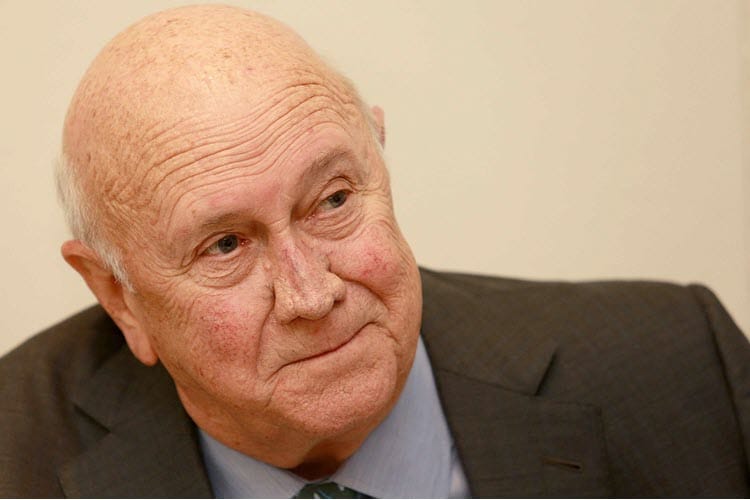Frederik Willem de Klerk (18 March 1936 – 11 November 2021) was a South African politician, who served as the country’s State President from 1989 to 1994.
Life and Career
He was born on 18 March 1936, in Johannesburg, South Africa. He received his early education at the Monument High School in Krugersdorp, a town in the province of Gauteng, South Africa. He went on to study at the Potchefstroom University for Christian Higher Education, where he received a Bachelor of Arts degree in 1958 and a Bachelor of Law degree in 1959.
De Klerk later obtained a Master of Law degree from the University of Potchefstroom in 1963. He continued his studies at the International University in Hamburg, Germany, where he earned a diploma in comparative law in 1969.
During his time in Germany, de Klerk also studied at the Paulskirche Institute in Frankfurt, where he was exposed to ideas of democracy and liberalism.
He joined the National Party in 1969 and was elected to parliament in 1972. He held a number of cabinet positions, including Minister of Mines and Energy, Minister of Internal Affairs, and Minister of National Education.
In 1989, he was elected as State President of South Africa, succeeding P.W. Botha. He immediately began to implement reforms that led to the dismantling of the apartheid system. In 1990, he ordered the release of Nelson Mandela from prison after 27 years of incarceration.
He also negotiated with the African National Congress (ANC) to end apartheid and establish a multi-racial democracy in South Africa. Together with Nelson Mandela, he was awarded the Nobel Peace Prize in 1993 for their efforts in this regard.
After the first democratic elections in South Africa in 1994, he served as Deputy President of Mandela’s government until 1996.
He retired from politics in 1997 and has since been involved in various business ventures and charitable organizations.
He died on 11 November 2021 in Cape Town, Western Cape.
Award and Legacy
He was awarded the Nobel Peace Prize, which he was jointly awarded with Nelson Mandela in 1993 for their efforts in bringing an end to apartheid in South Africa and laying the foundation for a new democratic system.
His role in dismantling apartheid was a significant turning point in South African history, and his efforts are widely recognized for their contribution to peace and reconciliation in the country.

